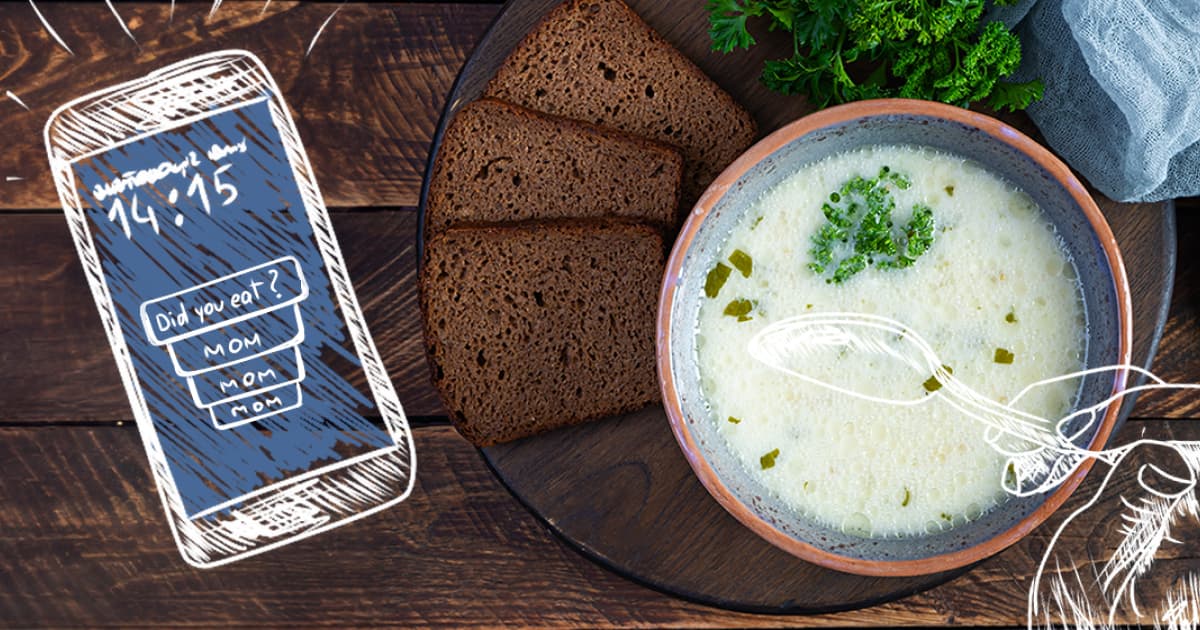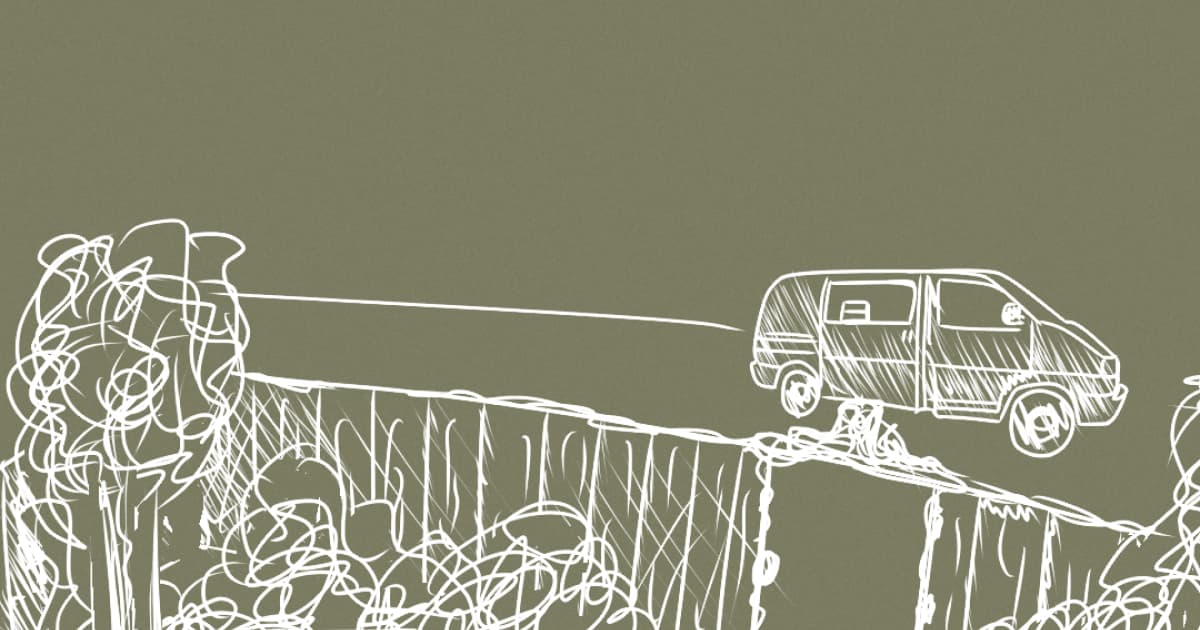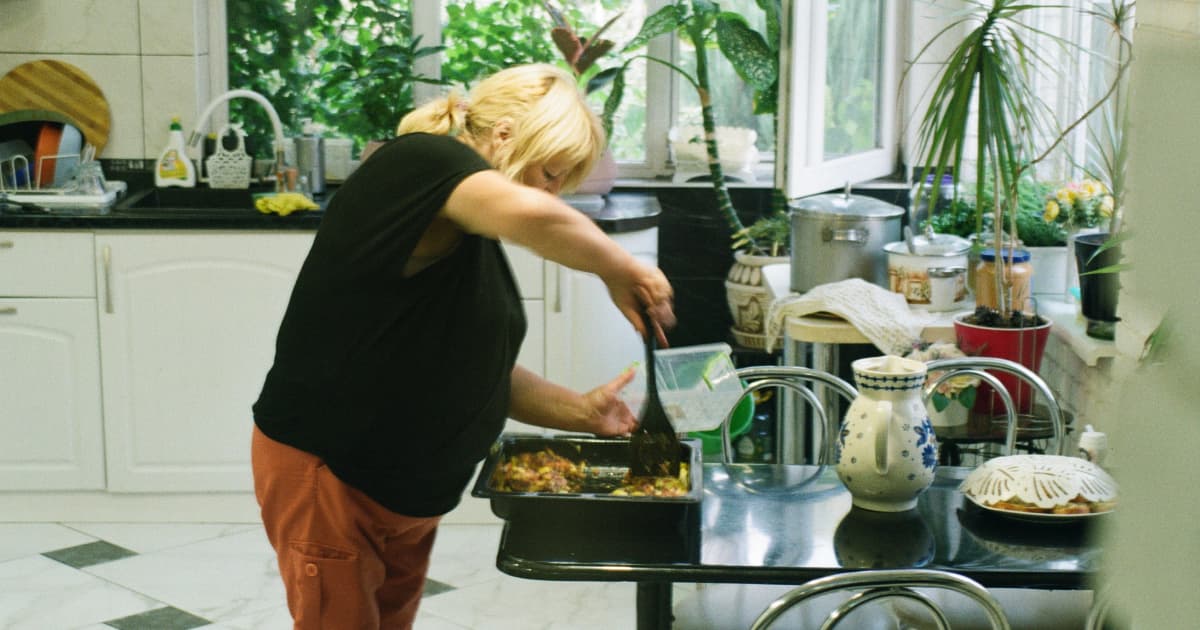"Yes, Mum, I ate": The story of the most famous kitchen near Chasiv Yar
Maks Chornyi

Eastern roads are much more welcoming to the well-fed. When you're full to your heart's content and the taste of OKKO gas station's hot dogs still lingers in your mouth, death seems kinder, and the afterlife shakes your shoulders gently.
The fighter jets flying overhead seem to be carrying another spoonful of okroshka (cold soup popular in Eastern Europe and North Asia — TN) into your mouth, the sound of Grad rocket launchers is nothing more than the sound of a sugar cube breaking on the bottom of a cup, and road dust is just cocoa sprinkles for a chocolate cupcake you eat with your coffee.
That day, we were evacuating wounded soldiers from the 3rd Separate Assault Brigade. I was an interpreter for the Australian paramedics. My team and I were waiting for a call in the Chasiv Yar area. When we heard the signal on the walkie-talkie, we went, as they say, to work. We got to the spot, picked up the soldiers, and delivered them to the stabilisation point.
Despite the oceans and several continents separating Australia and Ukraine, the foreigners looked quite good together with the Ukrainian paramedics — especially when it came to Anatoliivna's okroshka.
Lunch time
The sun was at its highest point, and our stomachs were rrrrrumbling in tune with the enemy artillery, so some of the team was released for lunch.
Dolph, a paramedic with the 3rd Separate Assault Brigade, promised the foreigners the best meal they had ever had in Ukraine. He kept his word. We went to see Anatoliivna.
She is an ordinary woman. Blonde hair, like ripe wheat, reaching my chest in height, with bright dark eye makeup, pink manicure, and nineteen soldiers in the kitchen.

In January 2023, Bakhmut was almost entirely under the control of the Russian military, the European Parliament decided to create a tribunal for Russia and Belarus, the top leadership of the Ministry of Internal Affairs crashed in Brovary, and Croatia officially switched from kunas to euros.
At the same time, a bus stopped near Anatoliivna's yard (we are not naming the location for security reasons — ed.), and 19 soldiers got out. The men were looking for accommodation to prepare for combat missions.

The kitchen is covered with white tiles, and contrasting black sofas moored by the door, are waiting for visitors' bloated stomachs to give them a few minutes of soft bliss.
The kitchen surface is lined with side dishes and salads, and the aroma of meat and garlic wafts from the oven. The greenery grows not only on Anatoliivna's windowsills, but also peeks through the open windows with vines and rose bushes.
This cathedral of nourishment and crispy crusts was built to bring together the closest people under one roof and invite new guests. In the summer, it was built to eat vegetable salads and drink dry white wine to the pungent smell of mosquito repellents, which would make your clothes remind you of the previous evening and summer for several days. And in the winter, to cook twelve dishes for Christmas and say goodbye to the year.
In the second year of the full-scale invasion, Anatoliivna's kitchen did not stop receiving guests, on the contrary, their number increased. So nineteen souls, at the invitation of the hostess, made themselves comfortable in the house: some on the polished parquet, some on the white tiles.
Over time, the soldiers found other places to live but did not stop visiting Anatoliivna. Moreover, they invited their brothers- and sisters-in-arms. Since then, a new era of the kitchen with white tiles and a bunch of flowerpots has begun.
Homeliness for the military
Nowadays, Anatoliivna is visited mainly by paramedics from different brigades.
"I feed whoever comes," she says, and her philosophy is simple.
She cooks the same dishes she used to make for her children and friends. Homemade kvas, kompot, roasted chicken with cheese, okroshka, borshch (green and red), solianka (thick sour soup — TN), salad with cucumbers, tomatoes, and sour cream, zrazy (a meat roulade dish — TN) — all this is a menu for one day.

Everything I used to cook for my family, I now cook for the military,
Anatoliivna says.
The woman has a modest team of cooks — two hands and a head with recipes. The schedule is simple — seven days a week.
"What weekends?" Anatoliivna laughs, "The soldiers will come, and what am I going to do? Will I send them away hungry?"

Okroshka for Australians
Daniel, a stocky Australian paramedic, has a beard as thick as the jungle, a voice as low and rough as if from purgatory, and the kindest eyes I've seen in 583 days. All in all, a real beast.
How sincere was his thin laugh, which sounded as if from his childhood, when he tasted okroshka! All thirty-two teeth were lined up in a smile. And after trying zrazy, he immediately asked me to write him in Latin letters how to pronounce the word "incredible" in Ukrainian.

Hunger is avoiding Anatoliivna's street in every way possible. The only people who dare to bring unrest here are Russian missiles, which have left the windows of the houses covered with plywood and the roofs leaky as a sieve.
And for dessert, we are waiting for our victory
The hostess is happy when she sees the house full of people. When the walls are protected. But no matter how happy she is to host the military, Anatoliivna is waiting for her neighbours and their families to return to visit and, of course, for peace. And for this, in fact, she does everything possible, and most importantly, she cooks delicious food.

I would like to tell you what Anatoliivna did before the war, how she treated premature babies in the maternity ward, or how she ran a battery business to teach children. But...
"The most important thing now is not to lose what we have. And I'm not afraid of losing the past, it's always with me, so don't ask me what I did for a living, just ask me what I've cooked today,
Anatoliivna says as she serves baked potatoes and cutlets.


